Pros and Cons of Different Centralized Exchanges - Blockchain WTF
Pros and Cons of Different Centralized Exchanges - Blockchain WTF
Centralized exchanges have a third party database acting as a middleman to help facilitate transactions. You might be asking, “Well, isn’t that the whole point of crypto – to cut out centralization and middlemen? Yes, my young crypto grasshoppers. We’ll be doing a video on decentralized exchanges shortly.
Centralized exchanges do have their place in the market and in helping crypto gain widespread adoption. Although moving forward the community will likely focus on ironing out the issues with decentralized platforms, centralized exchanges have helped add liquidity to the crypto markets. Take Coinbase for example. Most people in the crypto space have interacted with Coinbase for their first cryptocurrency transaction because of its easy to use interface and general popularity. Coinbase has also partnered with a number of products that make spending your crypto easy, like the Shift and Bitpay crypto debit cards.
Just realize centralized exchanges are one tool in your toolbox, and they are not your forever wallet. Just like you won’t use a hammer to fix every problem in your house, you won’t use centralized exchanges for every crypto scenario.
Remember not to store your coins on exchanges, especially centralized ones where you do not own your keys. Think of them as ATMs at a currency exchange, just for your crypto. You don’t leave your debit card in the reader after the transaction, same with your keys.
How do you know if an exchange is centralized or decentralized?
Well, a quick Brave Browser search will give you an idea. Additionally, centralized exchanges usually follow Know Your Customer (KYC) laws where you have to verify your name. This depends on the size of your transactions, your license, and other personal information. They don’t know how to tax crypto unless people willingly forfeit that information on your tax returns. Hence, Coinbase’s court order where they handed over 13,000 customer’s data over to the IRS.
Two major types of exchanges, fiat exchange and cryptocurrency-to-cryptocurrency (C2C) exchanges. FiatGovernment-issued cu... More exchanges allow you to take USD, Euros, or other government backed fiat and convert it to crypto. C2C exchanges only allow you to transfer crypto to crypto, usually Bitcoin and Ethereum are the most common pairing.

Coinbase
Things to note:
-You are buying crypto directly from Coinbase not other users, which technically makes them a broker.
-Users may create three types of wallets with Coinbase: wallet, vault, and multisig vault.
Pros:
-World’s largest Bitcoin exchange 6+ years in the space
-Supported in 32 countries
-Online and mobile wallet services.
-2FA and multi-signature security option to prevent unauthorized manipulation of funds.
-Instant transfers between Coinbase users.
-User-friendly interface
-Offers some help with password recovery for newbies
-Can pay using credit cards – requires photo ID
-High limits depending on account level
Cons:
-Slow customer service responses
-Turned over court-ordered user information data to the IRS
-Must follow all KYC laws
-Doesn’t offer many altcoins
-Coinbase holds your private keys
-Funds can be delayed (deposits and withdrawals) for three days.
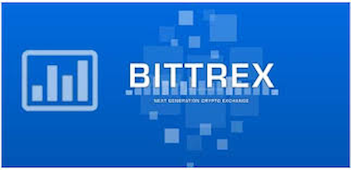
Bittrex
Pros:
-Great platform for arbitrage (the simultaneous buying and selling of securities, currency, or commodities in different markets or in derivative forms in order to take advantage of differing prices for the same asset.)
-One of the largest multi-altcoin cryptocurrency exchanges
-No ID required for basic accounts
-Security measures majority of user funds in cold storage
-Very secure, with two-factor authentication (2FA). Has never been hacked.
-Supports over 250 cryptocurrencies.
Cons:
-No margin trading
-Trading fees are solid 0.25% without any reductions for the users.
-Relatively new platform
-Worldwide, excluding USA
-Fully regulated and legally compliant in the United States
-Does not support deposits or withdrawals of fiat currencies
-Wait times high because of low liquidity
-Slow customer support

Binance
Pros:
-100+ cryptocurrencies
-High liquidity
-Low transaction and withdrawal fees
-Capable of processing 1.4 million transactions per second
-Stable mobile apps
-More than 80 altcoins accepted and tradeable
-No verification required for level 1 account, ID required for increased withdrawal
Cons:
-Possible Android mobile app bugs
-Delays when withdrawing certain coins
-Unknown future impact of unstable Chinese regulatory climate
-2FA for Chinese phone numbers only
-Some user data logged
-Buggy platform.
-No support for fiat.
-Slow customer support
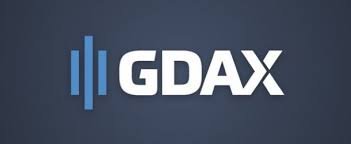
GDAX – sister-company of the Coinbase exchange
Pros:
-Multiple currencies
-Relevant to both the beginners and professionals, emphasis on professional traders
-GDAX has no history of being hacked
-Dedicated platform for seasonal traders and expert users
-Very low fees on transactions and trading
-Funds are also FDIC insured
Cons:
-Tendency of website freezing due to many users
-No mobile app
– Compliant exchanges can turn over personal information to authorities
-Interface is for experienced crypto users you will still need to transfer your cryptocurrency from one wallet to another to trade on GDAX
-Limited support worldwide – only the USA, UK, Singapore, Canada, Australia and Europe

Shapeshift
There are “quick” and “precise” transactions. Shapeshift has an article on their website that breaks down the differences here:
Pros:
-Offers 45 cryptocurrencies
-Mobile app for Android and iOs
-Integrated compatibility with wallets
-Only fees are mining fees
Cons:
– Used to be anonymous
– In 2018 was forced into KYC regulations no longer anonymous – membership loyalty program introduced after
– Wide exchange rate, especially for less popular coins
– Some cryptocurrencies might have low liquidity if they are not popular
– There are no fiat currencies to use when trading coins
-No trading platform
-Does not accept fiat
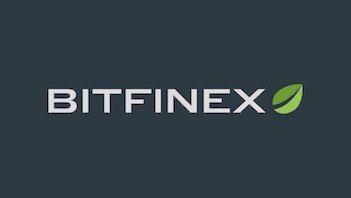
Bitfinex
Pros:
-Unlimited withdrawal
-High trading volume, deep liquidity
-Mobile app
Cons:
-Provides margin trading (helped lead to the 2008 crash)
-Exchange was hacked in 2016
-No longer takes clients from the US
-Payment issues since 2017
-Only accepts crypto payments
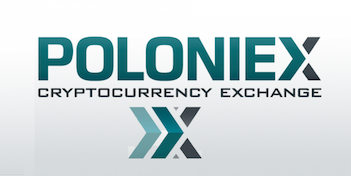
Poloniex
Pros:
-Margin trading altcoins
-High liquidity
-One of the largest selections of cryptocurrencies
-Stop-limit orders to reduce risk
Cons:
-Has temporarily “lost” people’s money during high usage and DDOS attacks
-Long wait time to respond to tickets
-Being investigated for insider trading
-Negative reviews from the cryptocurrency community regarding withdrawals and customer support
-Slow website
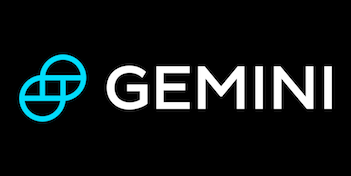
Gemini – created by the Winklevoss twins
Pros:
-Reliable
-Relaxed transaction fees
-Efficient and effortless platform
-User-friendly design
-Holds its customer’s digital assets using a modern technique called cold-storage (offline) and only a portion of the assets are in an online wallet.
Cons:
-Small range of virtual currencies
-Minimal customer support options
-Buy/sell methods only bank transfers
-Only USD
-Regulated by the New York State Department of Financial Services (NYSDFS)